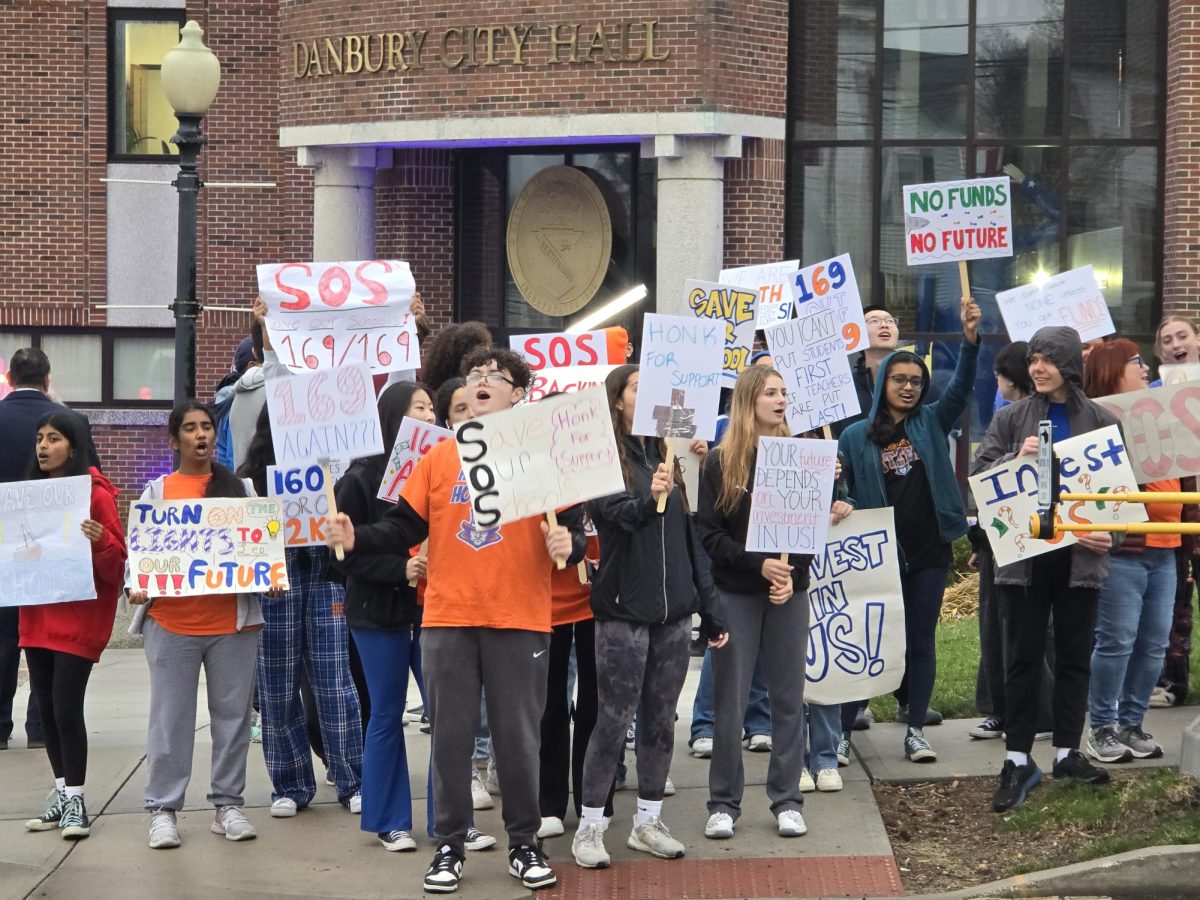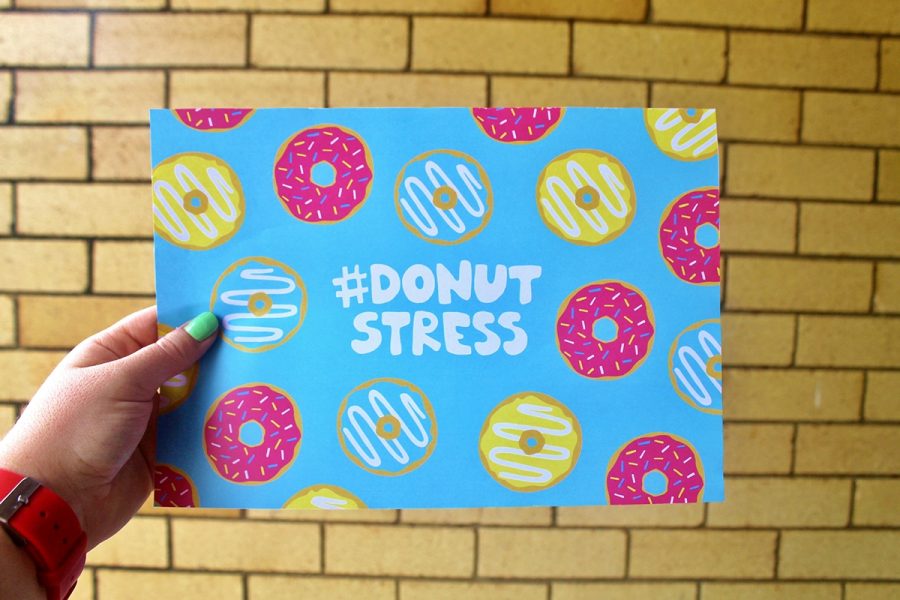Closing semester takes a toll on students’ stress
Students rush to improve grades and meet with teachers and counselors before the second semester.
Motivating all students to stay positive and put in their best efforts.
January 27, 2020
With the new semester rolling around in the next day or two, students typically tend to feel a bit on edge and eager to get their grades up as quickly as possible.
After speaking with DHS Crisis Counselor Caitlin Lewis, the observation of increasing student stress sustains.
Before anything else, it is important to make sure that all understand the differences between stress v. anxiety, as they are not the same thing.
According to “Mental Health First Aid”, stress is “a response to an external cause, such as a tight deadline at work or having an argument with a friend, and subsides once the situation has been resolved.” Meanwhile, “Anxiety is typically characterized by a ‘persistent feeling of apprehension or dread’ in situations that are not actually threatening” and “persists even after a concern has passed.”
Holding regular Yoga Flex Extensions every Friday, Lewis openly welcomes all students who may be feeling stressed or struggling with their mental health, to join her in the G gym. “Anyone can sign up,” says Lewis. “Sometimes we do more active stuff, sometimes we do more relaxing stuff. If a student says something like ‘I have back pain,’ we may do some things to help with that” the counselor continues.
Now hosting the Yoga flex for a second year, Lewis has noticed slight changes in the attendance saying “Last year was full every time and I don’t know why it’s not full this time; it’s been a lot smaller” and suspects it may have something to do with students’ self-scheduling. “Last year we did self-scheduling the whole time and right now we’ve just opened up self-scheduling so I don’t know if that’s part of it,” continues Lewis.
Now that students are once again able to schedule themselves for flex and are required to fill out a comment section in order to book a class, Lewis has recognized that “the kids that are in [her] flex say they are there because they’re feeling stressed.”
Not only are students experiencing stress from the worry of not being able to keep their grades up, but so are administrators. Some schools have even decided to disregard/eliminate Advanced Placement courses from their school curriculum/class lists. “Institutions like Beaver Country Day School in Massachusetts don’t think the inflated stress is worth the emotional and physiological toll,” (https://www.bachelorsdegreeonline.com) and therefore, have gotten rid of the courses completely.
Counselor Karen Chance has noticed that “student visits increase mid-year for various reasons,” and one of them being the classic case of Senioritis. “Senioritis starts to rear its ugly head right about now so seniors are getting stressed about grades, colleges, and paying for college,” says Chance. Meanwhile, “other students are coming by to change their schedules for the new upcoming semester or to talk about what they should take next year.”
Resources are available to all students who may be having difficulty handling stress or mental health issues such as anxiety. “We have many resources here at the high school for struggling students,” reminds Chance. “Whether it be stress from outside sources like home, family, friends, or their own internal stress stemming from organic problems like depression and anxiety.”
A few resources available to students include: Counselors, the Crisis Counselor, the School Based Health Center where they can see a therapist if they are not seeing one outside of school, or even a teacher or nurse.
As the new and last semester of the year rolls around, it is important that all students know, it is okay to feel overwhelmed or in need of help, and resources within DHS are available to all students if needed.




































